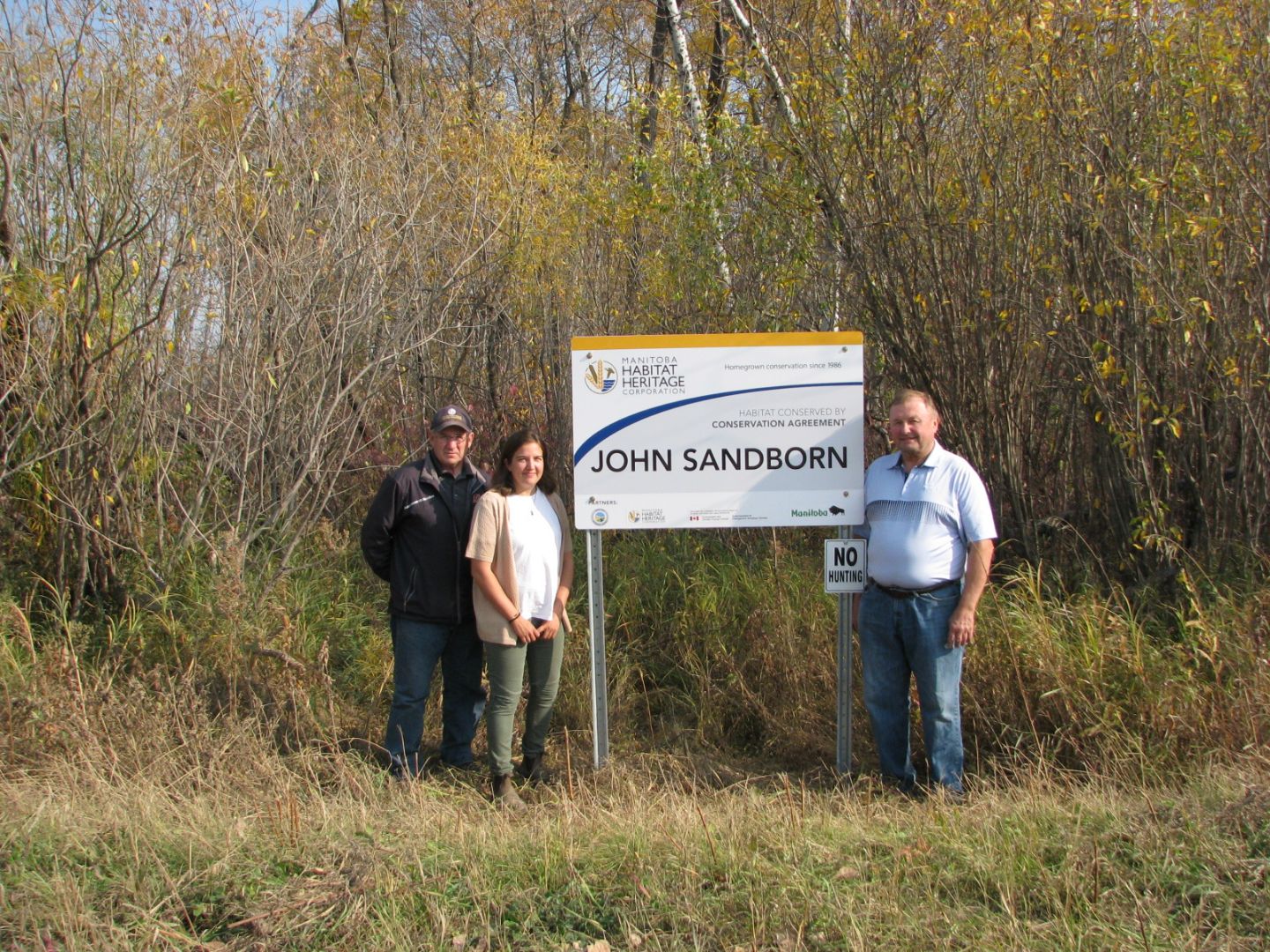
Habitat Protection Made Easy Through Partnership Agreement
Benito area grain farmer John Sandborn recently donated 58.5 acres of pristine woodland habitat to the Manitoba Habitat Conservancy (MHC) through a Conservation Agreement. The agreement will protect the habitat forever. The Swan Lake Watershed District partnered with John and MHC to facilitate signing of the Conservation Agreement. The mixed coniferous and deciduous forest is located south of Benito on the north slope of the Duck Mountains. It provides a home to many birds and animals including deer, moose, elk, bear, lynx, wolf and the occasional cougar.
“Originally I visited with Swan Lake Watershed District manger Stephanie Reid in their Swan River Office to get information on a pollinator program,” said landowner John Sandborn. “I was interested in seeding a mix of native wildflower and forage grasses to conserve wild bees and butterflies and to boost pollination and yields of the crops I grow. While I was there Stephanie told me about the MHHC Conservation Agreements (CA) program to protect wildlife habitat.”
The Watershed District Board supports the CA program as it helps them achieve habitat objectives defined in their integrated watershed plan,” said Swan Lake Watershed interim manager Edward Shao. “Partnering with MHC helps the Board take positive steps toward environmental management and sustainability within the watershed.”
“The agreement to protect the habitat would not have happened without the Swan Lake Watershed District,” John Sandborn said. “The staff had all the information, they explained the process and what to expect. They made it easy for me. It turned out that my objectives and those of MHC and the Watershed District were one and the same.”
“Manitoba Habitat Conservancy is happy to partner with Watershed Districts in Manitoba to conserve fish and wildlife habitat through voluntary agreements with landowners,” relayed MHC conservation specialist Roy Bullion. “We have the administrative capacity and expertise with conservation easements to help support local Watershed Boards and their landowners.”
“With Conservation Agreement donations there is almost always a sentimental connection between a piece of land and a family,” said Curtis Hullick, MHC field manager. “Often there is a desire to leave a wildlife habitat area in its natural state as a legacy. One benefit to habitat donations is MHC can provide a tax receipt to the landowner for the value of the habitat. A donated Conservation Agreement protects the habitat in perpetuity by an easement registered on the title of the land. The land itself remains in private ownership.”
“My Swedish grandfather Johan Sundbom homesteaded the farm in 1910,” said John Sandborn. “Three Sandborn generations have conserved the 58.5 acres of forest habitat in its natural state. I got to know this property well as I tended my trapline when I was in elementary school. I feel good about protecting the habitat for the birds and animals in perpetuity. It pleases me to know that my niece, who will inherit the property, is fully supportive of the Conservation Agreement.”


